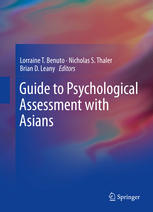

Most ebook files are in PDF format, so you can easily read them using various software such as Foxit Reader or directly on the Google Chrome browser.
Some ebook files are released by publishers in other formats such as .awz, .mobi, .epub, .fb2, etc. You may need to install specific software to read these formats on mobile/PC, such as Calibre.
Please read the tutorial at this link: https://ebookbell.com/faq
We offer FREE conversion to the popular formats you request; however, this may take some time. Therefore, right after payment, please email us, and we will try to provide the service as quickly as possible.
For some exceptional file formats or broken links (if any), please refrain from opening any disputes. Instead, email us first, and we will try to assist within a maximum of 6 hours.
EbookBell Team

4.1
10 reviewsTo effectively serve minority clients, clinicians require a double understanding: of both evidence-based practice and the cultures involved. This particularly holds true when working with Asian-Americans, a diverse and growing population.
The Guide to Psychological Assessment with Asians synthesizes real-world challenges, empirical findings, clinical knowledge and common-sense advice to create a comprehensive framework for practice. This informed resource is geared toward evaluation of first-generation Asian Americans and recent immigrants across assessment methods (self-report measures, projective tests), settings (school, forensic) and classes of disorders (eating, substance, sexual). While the Guide details cross-cultural considerations for working with Chinese-, Japanese-, Korean and Indian-American clients, best practices are also included for assessing members of less populous groups without underestimating, overstating or stereotyping the role of ethnicity in the findings. In addition, contributors discuss diversity of presentation within groups and identify ways that language may present obstacles to accurate evaluation. Among the areas covered in this up-to-date reference:
Designed for practitioners new to working with Asian clients as well as those familiar with the population, the Guide to Psychological Assessment with Asians is exceedingly useful to neuropsychologists, clinical psychologists, health psychologists and clinical social workers.